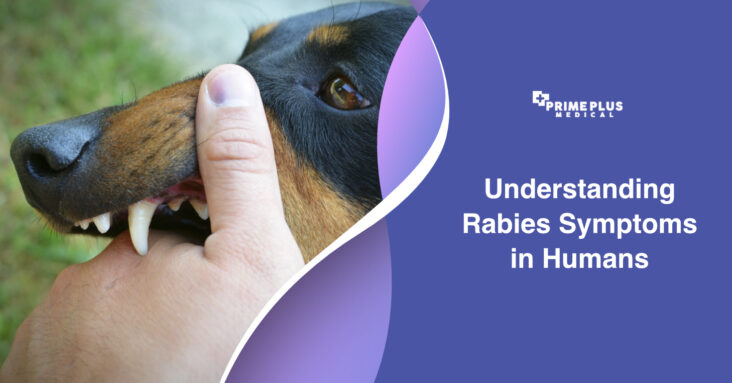Rabies is a viral infection that affects the central nervous system, primarily in mammals. It is a highly dangerous and often fatal disease if not treated promptly. This article aims to provide comprehensive information about rabies, including its definition, causes in humans, symptoms, and preventive measures.
What is Rabies?
Rabies is a zoonotic disease caused by the rabies virus, which belongs to the family Rhabdoviridae. It primarily spreads through the bite or scratch of an infected animal. The virus targets the central nervous system, including the brain, leading to severe neurological damage and ultimately death if left untreated.
Causes of Rabies in Humans
Human rabies cases commonly occur due to the transmission of the virus from infected animals. The virus can be transmitted through the saliva of infected animals, typically through bites. Among the animals most commonly associated with rabies transmission are dogs, bats, raccoons, skunks, and foxes. It’s crucial to note that any mammal can carry the virus and transmit it to humans.
read more article 3 Facts About Monkeypox Virus You Need to Know
Rabies Symptoms in Humans
Recognizing the symptoms of rabies is essential for early diagnosis and treatment. The incubation period of the virus can vary from a few days to several months, making prompt identification crucial. Here are the most common symptoms of rabies in humans:
- Flu-like Symptoms: Initially, the infected person may experience flu-like symptoms, including fever, headache, and general weakness. These symptoms are often followed by discomfort or pain at the site of the bite.
- Neurological Symptoms: As the virus progresses, it affects the central nervous system, leading to various neurological symptoms. These may include anxiety, confusion, agitation, hallucinations, insomnia, and difficulty swallowing.
- Hydrophobia: One of the distinctive symptoms of rabies is hydrophobia, an intense fear of water. Swallowing becomes extremely difficult due to spasms in the throat muscles, triggering fear and avoidance of drinking or even the sight of water.
- Muscle Weakness: Infected individuals may experience muscle weakness, especially around the bite area, progressing to full-body weakness and paralysis as the disease advances.
- Unusual Sensations: Rabies can cause tingling or prickling sensations at the site of the bite, known as paresthesia. It may spread to other parts of the body, indicating the progression of the infection.
Preventive Actions for Rabies
Preventing rabies requires a combination of vaccination and awareness about avoiding exposure to potentially infected animals. Here are some preventive measures individuals can take:
- Vaccination: Vaccinating domestic animals, such as dogs and cats, is crucial in preventing the spread of rabies. Regular vaccination schedules should be followed, as recommended by local health authorities.
- Animal Control: Stray and feral animals should be handled by professionals to prevent the transmission of rabies. Avoid approaching or handling wild animals, particularly bats, raccoons, and foxes.
- Post-Exposure Prophylaxis (PEP): In case of potential exposure to rabies, immediate medical attention is vital. PEP involves a series of injections that help prevent the virus from causing an infection.
- Education and Awareness: Public awareness campaigns about rabies, its transmission, and preventive measures can significantly reduce the risk of infection. Promoting responsible pet ownership and reporting stray or aggressive animals are essential components of awareness initiatives.
Take Rabies Vaccine and Seek Immediate Care if Bitten by Stray Animal
Rabies is a life-threatening disease that requires immediate attention. Recognizing the symptoms and understanding the preventive actions can help save lives. If you or someone you know experiences any signs of rabies after potential exposure to an infected animal, seek medical attention promptly. Remember, prevention through vaccination and awareness is the key to combating rabies and protecting public health.
By prioritizing vaccination, responsible animal control, and educating communities, we can strive towards a world free from the threat of rabies. Stay informed, stay safe, and take necessary precautions to safeguard yourself and your loved ones against this deadly disease.
If you are interested in seeking our services, please do give us a call at +(62)361 474 0055 or email us at [email protected]. Our team of experienced and high-quality doctors and specialists is always ready 24/7 to provide the best health care for you.
We provide a reliable and comfortable environment for your healthcare needs, ensuring your well-being and peace of mind. Don’t hesitate to reach out to us and take a step towards maintaining your health today!

